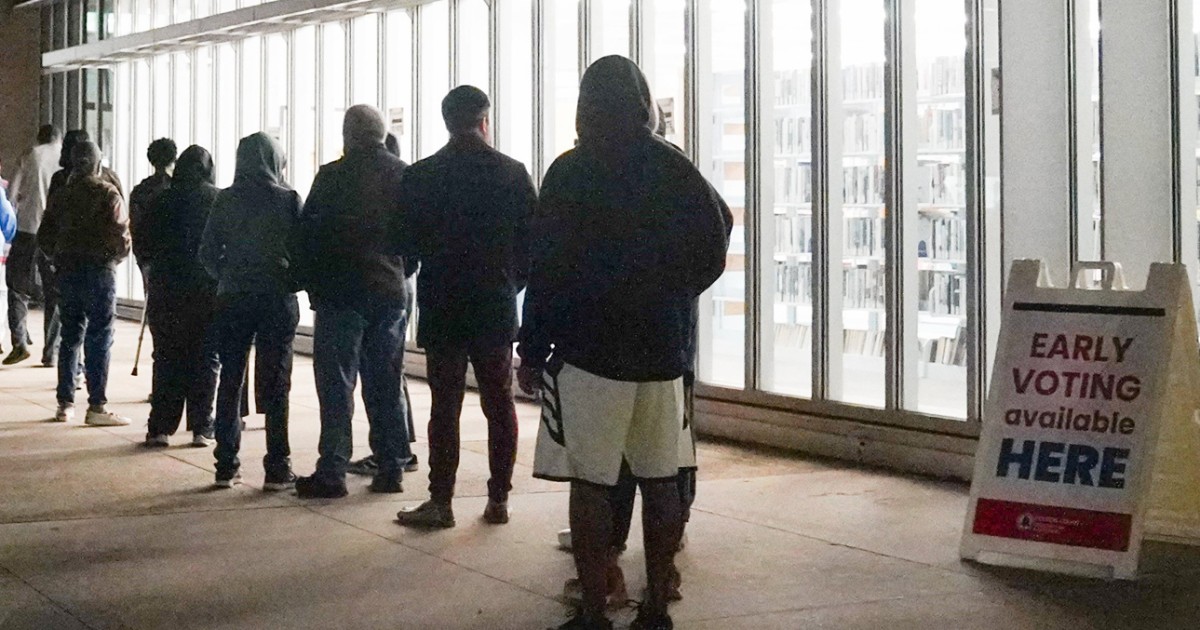
Local election officials in Georgia must certify results, judge rules
Posted on 10/15/2024

County election boards in Georgia are not allowed to refuse to certify election results, a state judge ruled on Tuesday.
Concerns of fraud or abuse are to be settled in court, the judge said, not by county officials acting unilaterally.
“If election superintendents were, as Plaintiff urges, free to play investigator, prosecutor, jury, and judge and so -- because of a unilateral determination of error or fraud -- refuse to certify election results, Georgia voters would be silenced. Our Constitution and our Election Code do not allow for that to happen,” Fulton County Superior Court Judge Robert McBurney said in his order.
In the wake of the 2020 election, former President Donald Trump and his allies pressured county officials to block the certification of his loss. Since then, Republican members of the boards have used the once-routine process of approving election results and sending them on to the state as a political battleground.
McBurney said the law was clear when it says that county officials "shall" certify the results. In the footnotes, he said the word was quite clear.
"To users of common parlance, 'shall' connotes instruction or command: You shall not pass!" he wrote, quoting Lord of the Rings' Gandalf's famous battle cry. "And, generally, even lawyers, legislators, and judges, construe “shall” as “a word of command."
Julie Adams, a Republican member of the Fulton County Board of Registration and Elections, had gone to court claiming that she was required to refuse to certify the election results if she believed the results were incorrect or unreliable.
Adams, who is a member and regional coordinator of former Trump lawyer Cleta Mitchell’s activist group Election Integrity Network, abstained from voting to certify primary results in Georgia in May of this year. She is one of a growing number of Georgia officials who have refused to certify election results since 2020, worrying election experts that county officials might try and block the routine certification of election results in the name of baseless conspiracy theories.
Adding to these concerns, the Republican-controlled Georgia State Election Board voted earlier this year to allow local boards to conduct “reasonable inquiry” into election results. The rule did not define “reasonable inquiry,” worrying some that the rule would allow county election boards to request huge amounts of information and potentially delay or block certification of results if they see fit.
Georgia election officials celebrated Tuesday's ruling.
Concerns of fraud or abuse are to be settled in court, the judge said, not by county officials acting unilaterally.
“If election superintendents were, as Plaintiff urges, free to play investigator, prosecutor, jury, and judge and so -- because of a unilateral determination of error or fraud -- refuse to certify election results, Georgia voters would be silenced. Our Constitution and our Election Code do not allow for that to happen,” Fulton County Superior Court Judge Robert McBurney said in his order.
In the wake of the 2020 election, former President Donald Trump and his allies pressured county officials to block the certification of his loss. Since then, Republican members of the boards have used the once-routine process of approving election results and sending them on to the state as a political battleground.
McBurney said the law was clear when it says that county officials "shall" certify the results. In the footnotes, he said the word was quite clear.
"To users of common parlance, 'shall' connotes instruction or command: You shall not pass!" he wrote, quoting Lord of the Rings' Gandalf's famous battle cry. "And, generally, even lawyers, legislators, and judges, construe “shall” as “a word of command."
Julie Adams, a Republican member of the Fulton County Board of Registration and Elections, had gone to court claiming that she was required to refuse to certify the election results if she believed the results were incorrect or unreliable.
Adams, who is a member and regional coordinator of former Trump lawyer Cleta Mitchell’s activist group Election Integrity Network, abstained from voting to certify primary results in Georgia in May of this year. She is one of a growing number of Georgia officials who have refused to certify election results since 2020, worrying election experts that county officials might try and block the routine certification of election results in the name of baseless conspiracy theories.
Adding to these concerns, the Republican-controlled Georgia State Election Board voted earlier this year to allow local boards to conduct “reasonable inquiry” into election results. The rule did not define “reasonable inquiry,” worrying some that the rule would allow county election boards to request huge amounts of information and potentially delay or block certification of results if they see fit.
Georgia election officials celebrated Tuesday's ruling.
Comments( 0 )
0 0 0
0 0 2

:quality(70)/cloudfront-us-east-1.images.arcpublishing.com/adn/JF6FH7DLYVBLZMKLMUUM52A2CI.JPG)




















